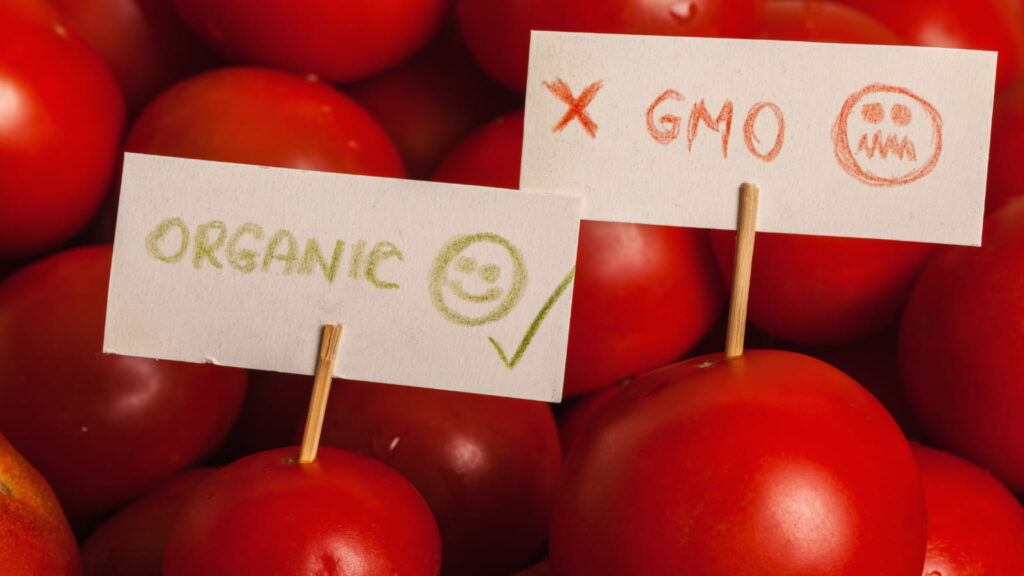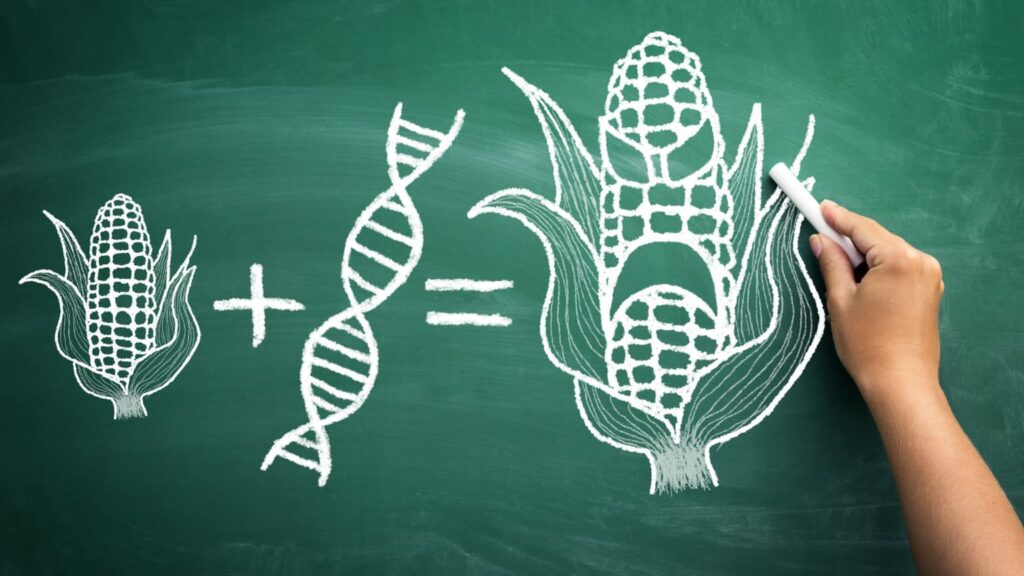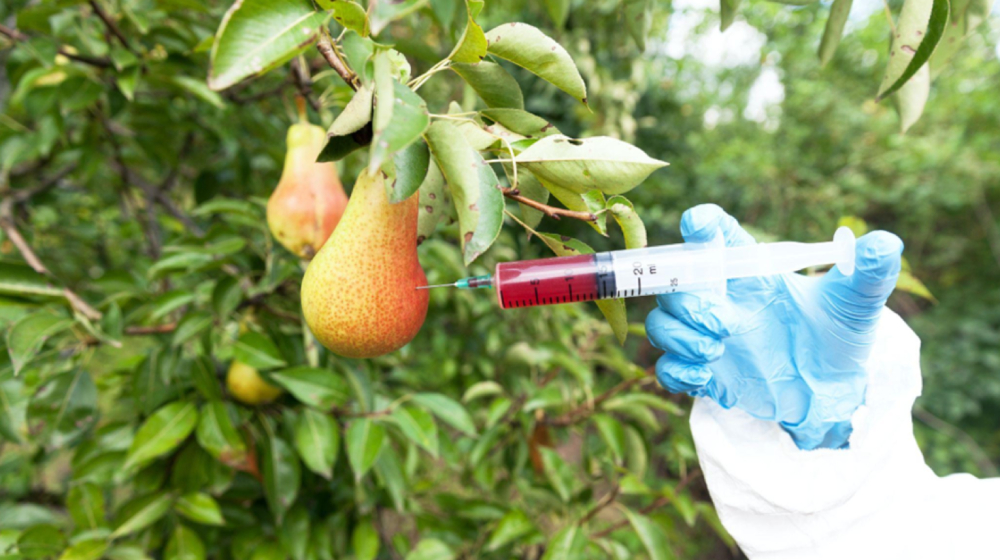Whether genetically modified foods are safe to eat has been a topic of serious debate both within the agricultural community and at dinner tables worldwide for some time now. Still, safety isn’t the only concern when it comes to the world’s reliance on foods produced with genetically modified organisms (GMOs).
A lot of investigation is aimed at whether the process required to create GMOs in the first place is harming the environment in any way. Scientists and laypeople alike believe that GMO crops pose a significant risk to the environment and can affect the planet on which we live well into the future.
This comprehensive guide helps uncover the difference between GMO and non-GMO foods, their environmental impact, why today’s non-GMO labeling isn’t sufficient, and how emerging technologies are taking the world into a new era of identifying healthy practices that can lead to sustainable living for us all.
What Are GMO vs. Non-GMO Foods?

GMO foods are those that have been genetically engineered in a laboratory. Transgenic technology, which produces GMOs, creates combinations of genes that are impossible to develop through traditional crossbreeding methods and thus do not exist in nature.
Only a few genetically modified crops are available, but many of their yields are further processed into other things (corn, for instance, is turned into oil, flour, and cornstarch). This production causes the number of GMO food products to grow exponentially over the years.
On the other hand, non-GMO foods have not undergone transgenic processing, but that does not mean they do not contain GMOs. Genetically modified organisms travel, and their proximity has been shown to impact the crops grown around them. For that reason, even foods labeled as “non-GMO” may still contain trace amounts.
It’s important to note that all organic foods fall under the non-GMO umbrella, as organic growing standards mandate that all food using the label be GMO-free.
The Impact of GMOs on Food Sustainability?

As most GMO crops are engineered to be herbicide-tolerant, popular herbicides are used on more than half of all corn and soybeans grown in the United States, even though these can be toxic to the human body.
Furthermore, genetic modification has the unintended consequence of spawning superweeds, which do not go away on their own and can only be contained by using even more potent herbicides, like 2,4-D, that have the potential to cause even more bodily harm.
Special Research on Glyphosate
Certain research indicates that glyphosate, a primary ingredient of the popular herbicide RoundUp, can have a negative effect on both soil microbiology and human health. The World Health Organization has classified the substance as being “probably” carcinogenic, and farmers exposed to it at high levels are often put at a much higher risk of developing non-Hodgkin’s lymphoma, a type of cancer. It may also be toxic for wildlife, though additional studies are needed in that area.
Glyphosate’s biggest impact, however, is perhaps still to come. The truth is that no one knows the long-term effects of working with GMOs because they have not been around long enough for anyone to find out. Nevertheless, with so many GMO foods out there, they cannot be recalled, meaning we may have to continue using more potent herbicides to control their environmental effects.
The Issue with Non-GMO Labeling

It’s clear that staying away from GMOs can promote sustainability in both the environment and the food supply. However, eliminating GMOs from your diet is not always an easy feat.
Many people who want to stay away from GMOs push for and rely on foods clearly labeled as non-GMO, but the issue with these labels is that every certifying body has its own rules and regulations. Some require testing ingredients throughout the supply chain; others don’t test the final product at all.
If testing comes back with a value of less than 1% of genetically modified ingredients, the product can often be considered GMO-free, and companies can use the GMO-free label. Even then, testing is often outsourced to technical service providers, not all of whom are committed to sustainable practices.
As a result, non-GMO labeling isn’t always reliable in keeping you from consuming GMOs, and those who want to stay away from them need access to more robust technology to help them accomplish that goal.
How Blockchain Technology Can Help?

Blockchain technology has one distinct advantage in the GMO landscape: It can guarantee that brands provide consumers with the non-GMO supply they seek.
Blockchain’s immutability features make duplicating or modifying transactions impossible unless validated by stakeholders. This means blockchain has the power to ensure complete transparency as food makes its way through the supply chain. Furthermore, any changes made are recorded in the blockchain ledger as separate entries.
Blockchain databases are highly reliable because every entry is associated with a transaction owner. Anyone who touches your product takes responsibility for what happens to it, facilitating even greater transparency and inspiring a sense of trust that what your consumers purchase is truly GMO-free.
Using Technology to Ensure Sustainability
The food industry is not known for being tech-savvy, and that lack of technology has been responsible for why data gets lost and numbers can be altered. Technology is supposed to make systems and processes more efficient, not act as another burdensome task that farmers and others in the supply chain have to check off their to-do lists.
Fortunately, today’s technological advances in the agricultural space have made it much easier to ensure sustainability and eliminate the possibility of consuming GMOs by giving all parties, from farm to table, the ability to track and trace produce from end to end. These software solutions are usually cloud-based, which makes them accessible to a wide range of people.
When it comes to creating and maintaining sustainability by eliminating GMOs, all parties must play their part, and today’s emerging technologies ensure that everyone can.
Pramod Sajja, CEO & President at Paramount Software Solutions (farmtoplate.io).
